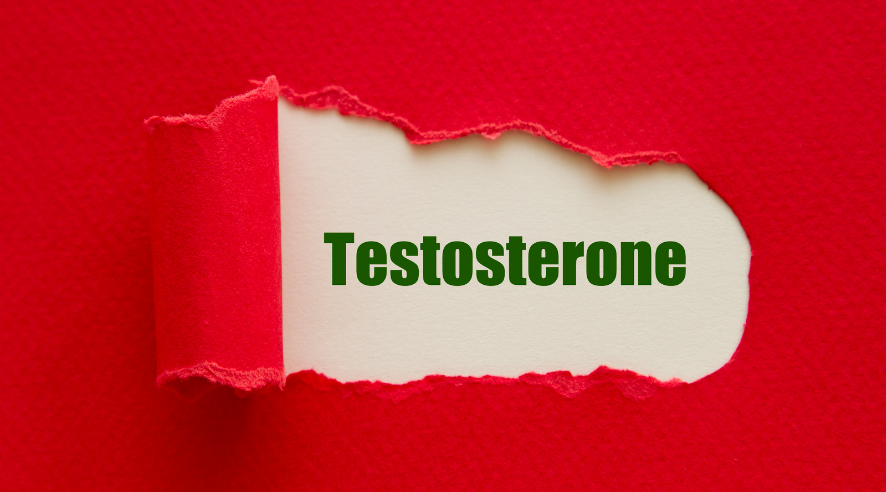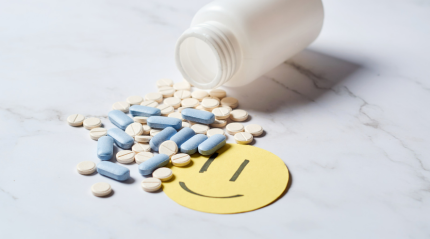Testosterone Therapy: A Comprehensive Guide to Its Benefits, Risks, and Effectiveness
- 14 August 2022

Testosterone therapy is a medical treatment that helps to increase the levels of testosterone in men. It is used to treat various conditions such as low testosterone levels, infertility, and sexual dysfunction. However, like any medical treatment, it comes with its benefits, risks, and effectiveness. This article aims to provide a comprehensive guide to testosterone therapy.
What is Testosterone Therapy?
Testosterone therapy involves the administration of testosterone into the body to increase its levels. It is available in various forms such as injections, gels, patches, and pellets. It is prescribed to men who have low testosterone levels or who are suffering from the symptoms of testosterone deficiency.
Benefits of Testosterone Therapy
Testosterone therapy has several benefits, including:
Improved Sexual Function: Testosterone therapy can improve sexual function by increasing libido, reducing erectile dysfunction, and improving overall sexual performance.
Increased Muscle Mass and Strength: Testosterone therapy can help to increase muscle mass and strength, making it an effective treatment for muscle-wasting diseases.
Increased Bone Density: Testosterone therapy can help to increase bone density, reducing the risk of fractures and osteoporosis.
Improved Mood and Cognitive Function: Testosterone therapy can help to improve mood, cognitive function, and overall well-being.
Risks of Testosterone Therapy:
Like any medical treatment, testosterone therapy comes with its risks. The most common risks include:
Increased Risk of Blood Clots: Testosterone therapy can increase the risk of blood clots, which can lead to serious health problems such as heart attacks and strokes.
Prostate Cancer: Testosterone therapy can increase the risk of prostate cancer, especially in men who have a history of prostate cancer in their family.
Sleep Apnea: Testosterone therapy can worsen sleep apnea, a condition that causes interruptions in breathing during sleep.
Acne and Skin Irritation: Testosterone therapy can cause acne and skin irritation, especially if the patient is using topical forms of testosterone.
Effectiveness of Testosterone Therapy
Testosterone therapy has been shown to be effective in treating several conditions, including:
Low Testosterone Levels: Testosterone therapy is effective in increasing testosterone levels in men who have low levels of testosterone.
Sexual Dysfunction: Testosterone therapy is effective in improving sexual function in men who have low testosterone levels.
Muscle Wasting: Testosterone therapy is effective in increasing muscle mass and strength in men who suffer from muscle-wasting diseases.
Improved Sexual Function
Low testosterone levels can cause a decrease in libido, erectile dysfunction, and other sexual dysfunctions. Testosterone therapy can help to improve sexual function by increasing libido, improving erectile dysfunction, and increasing overall sexual performance. Studies have shown that testosterone therapy can improve sexual function in men with low testosterone levels.
Increased Muscle Mass and Strength
Testosterone plays a significant role in building and maintaining muscle mass and strength. Testosterone therapy can help to increase muscle mass and strength, making it an effective treatment for muscle-wasting diseases such as sarcopenia. Studies have shown that testosterone therapy can increase muscle mass and strength in men with low testosterone levels.
Increased Bone Density
Testosterone plays a crucial role in maintaining bone density. Low testosterone levels can lead to osteoporosis, a condition that causes the bones to become weak and brittle. Testosterone therapy can help to increase bone density, reducing the risk of fractures and osteoporosis. Studies have shown that testosterone therapy can increase bone density in men with low testosterone levels.
Improved Mood and Cognitive Function
Testosterone plays a role in mood regulation and cognitive function. Low testosterone levels can lead to depression, anxiety, and cognitive decline. Testosterone therapy can help to improve mood, cognitive function, and overall well-being. Studies have shown that testosterone therapy can improve mood and cognitive function in men with low testosterone levels.
However, it is important to note that testosterone therapy is not a one-size-fits-all treatment. It is essential to consult with a qualified healthcare professional before starting testosterone therapy to ensure that it is safe and appropriate for you. The healthcare professional will evaluate your medical history, symptoms, and perform tests to determine if testosterone therapy is suitable for you.
Additionally, testosterone therapy comes with potential risks and side effects. It is important to discuss the potential risks and side effects with a healthcare professional before starting testosterone therapy.
Conclusion
Testosterone therapy is a medical treatment that can provide significant benefits to men who have low testosterone levels or who are suffering from the symptoms of testosterone deficiency. However, like any medical treatment, it comes with its risks and side effects. It is important to consult with a qualified healthcare professional before starting testosterone therapy to ensure that it is safe and appropriate for you. With proper monitoring and care, testosterone therapy can be an effective treatment for various conditions, improving the overall quality of life for many men.




